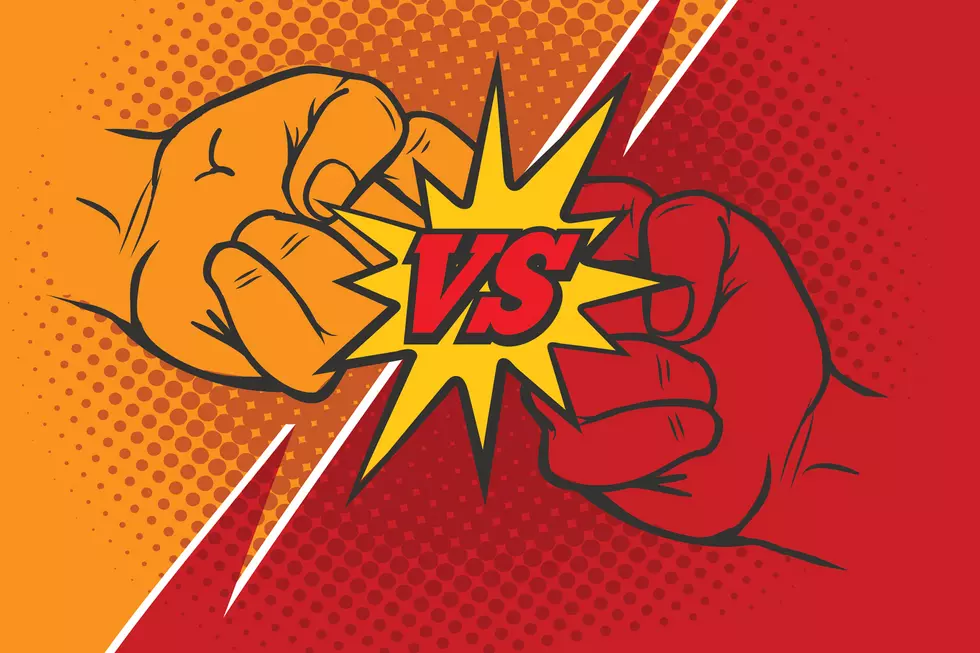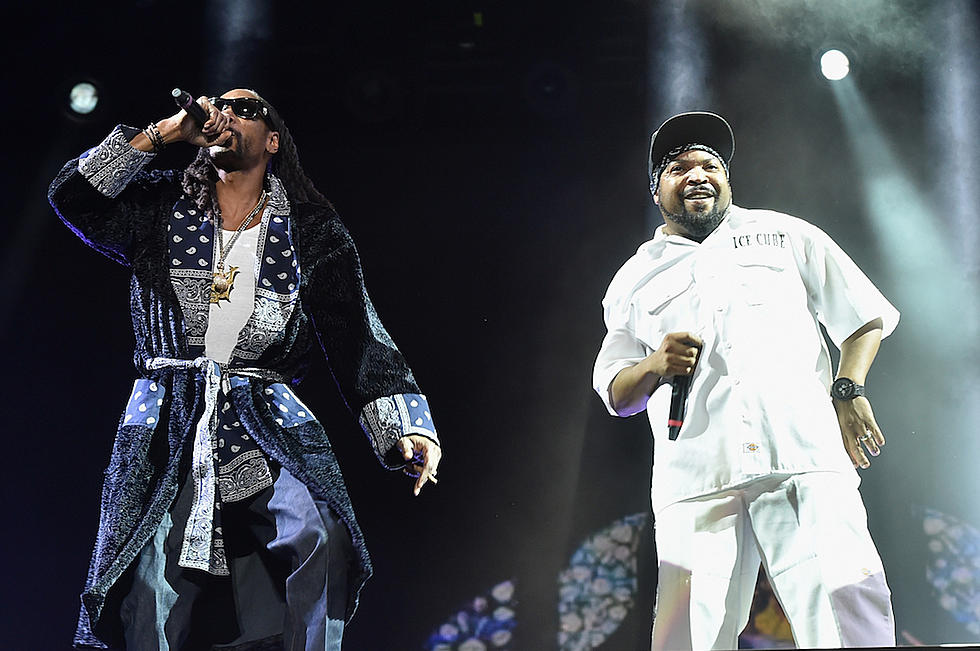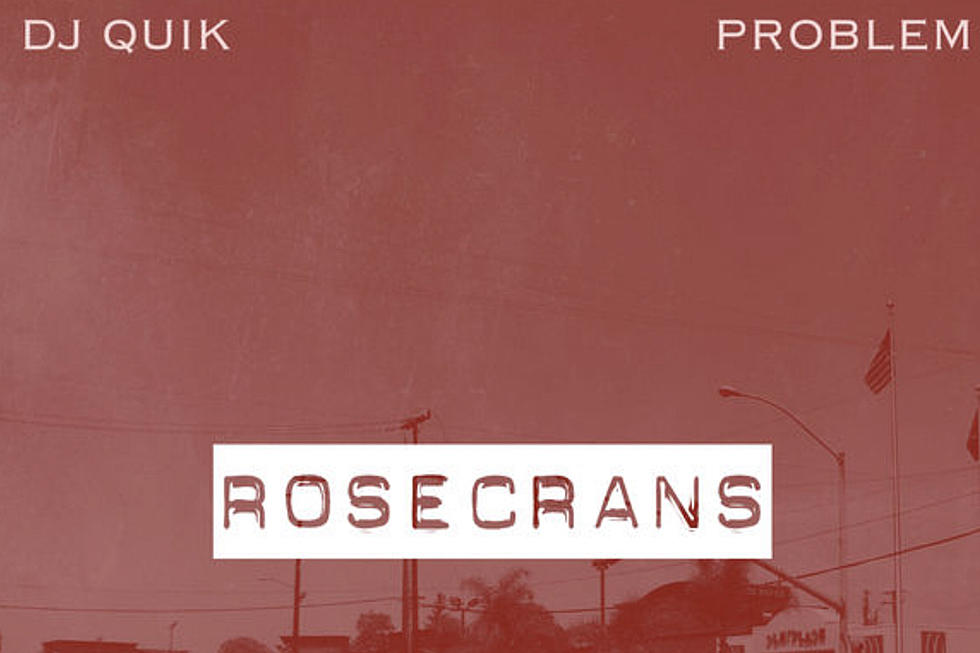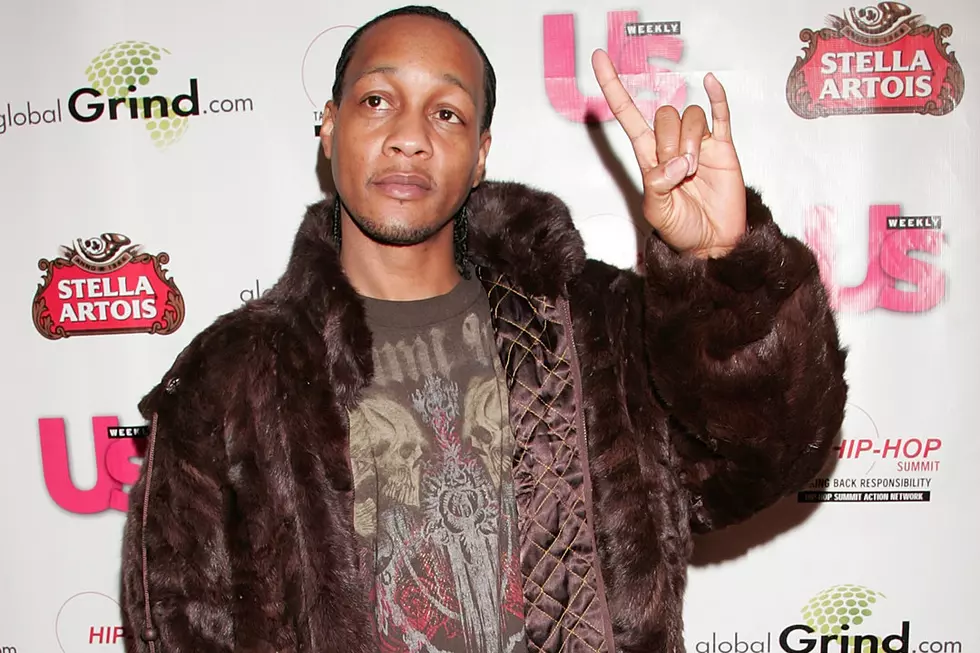
DJ Quik Sheds Light on ‘The Book of David,’ Wants to Hug DMX
DJ Quik is not supposed to be here. It's a fact that he points out to you several times when the storied rapper-producer talks of his groundbreaking two-decade-long career. In terms of acclaim and impact amongst hip-hop studio deities, Quik sits at the same G.O.A.T. table as Dr. Dre, DJ Premier, Pete Rock, RZA and the Neptunes. Since his landmark platinum debut, 'Quik Is the Name,' the multi-talented performer has not only released a string of critically-acclaimed albums, but has produced for the likes of 2Pac, Snoop Dogg, Tony! Toni! Tone!, Jay-Z,Whitney Houston, Talib Kweli and Ludacris. But during Quik's impressive run there has been heartache. The violent deaths of close friends, a battle with alcohol abuse and a five-month 2006 jail stint from a 2003 physical assault charge all threatened to derail his career. Now with his April 19 release, 'The Book of David,' DJ Quik continues his ambitious amalgamation of hip-hop, funk and R&B. The man is a survivor. And he still has quite a lot to say.
Let's go back to your 1991 debut album, 'Quik is the Name.' You were able to stand out amongst your hip-hop peers because you could effortlessly go from a hardcore, two-fisted gangsta rap track like 'Born and Raised in Compton' to a more jazzy, R&B sound heard on 'Tonite.' Were you aware that you were taking hip-hop in a new musical direction?
Not at all. On 'Quik is the Name' I don't know if the musical aspect of those songs was subconscious or on purpose. I just knew that when it came to my production I always remembered how Isaac Hayes' 'Hot Buttered Soul' album affected me. One of my favorite artists is Curtis Mayfield. That music defined my life. I would never want more than what I got and that was to be born in the '70s and witness that music firsthand. I was always a very musical person. R&B was just as huge to me as was hip-hop when I was growing up and DJing in Compton.
Along with N.W.A., LL Cool J, Public Enemy, Ice Cube, and a few others, there were not a lot of hip-hop acts going platinum during your first year on the scene. Yet, you were able to sell over a million copies of 'Quik Is the Name.' How did that immense success change your life as a kid coming out of city as notorious as Compton, Calif.?
I never thought I would go platinum. No one at the label did, honestly. It was surreal to be out there with MC Hammer, N.W.A. and En Vogue and meeting these famous people. These are my legends today. But back then I used to stare at their album covers all day and dream.
In past interviews you have been open about some of the personal battles you have endured during your rollercoaster career. Was there ever a moment when you thought, "That's it. I'm done with the music business?"
There were a few times I thought about walking away. When [I was recording] the 'Rhythm-al-ism' album [1998], my best friend was killed in my studio. That was a dark moment for me that I struggled through. And then a few years later, [my musical protégé] Mausberg was killed, which just added on to everything.
When did you realize you had a serious problem?
When I was diagnosed with post-traumatic stress disorder. But before that, I didn't know how serious it was for me. Just looking back at my life, it sometimes makes me almost feel sorry for myself.
So how did you get through those dark times?
I did a lot of drinking, a lot of vodka. I didn't want to face reality. But going to jail was a wake up call. Now everyday is another day that I can reinvent myself. Everyday is another day that I can forgive my enemies. Everyday is another day that I don't have to drink. Everyday is another day I can try to be more like a legend in my families' life; in my daughters' and son's life.
Your new album, 'The Book of David,' is being called one of the best efforts of your long storied career by music critics. How does it feel to still be releasing well-received work 20 years after 'Quik Is the Name'?
I don't know what to think [laughs]. This is what I do. 'The Book of David' is coming out on my label MSR [Mad Science Records]. It's distributed by Fontana. Shout out to Sylvia Rhone, who is one of my people. The new album impresses me because within the music we have the analog sound back. When the music went all digital, I think something was lost in my music. I'm back to square one with the music. This record is an album of clusters. Three songs in a row just go hard together because they all cut into each other. It's not like track No. 1 and 4 are cool, but No. 7 and 13 sucks. These songs have a theme. Even if you don't like the production you have to admit this album is well sequenced.
How do you envision taking 'The Book of David' out on the road?
The way the new songs segue together, it's very fluid. I'm doing 'The Book of David' from a place where I want to be remembered like Barry White -- a great soulful conductor. So I'm going to have fun with this tour. When I do shows today, I hire a string section and put them onstage with my band. And instead of just doing 'Jus Lyke Compton,' 'Sweet Black P---y' 'Tonite' or 'Born and Raised in Compton' and 'Down Down Down,' we will perform 'Love's Theme' by the Love Unlimited Orchestra. And the audience is just blown away. I use my boy Jeff who is the hip-hop orchestrator. He comes onstage with me and we tear that s--t down!
It's an exciting time to be DJ Quik, right?
I'm just glad that people are still listening to my music. At one point in my career I think I became a little bitter. I thought that nobody needed a DJ Quik beat anymore. But I'd like to thank people like Clive Davis. He put me in the Grammy exhibit out here in Los Angeles. I have an exhibit in the hip-hop part of the Grammy Museum.
You sound choked up. How huge of a moment was that for you?
I'm just honored. I'm really emotional right now. I've been through too much. When I see people like DMX I'm going to give that dude a big ass hug [laughs].
More From TheBoombox



![DJ Quik Has a Theory About Tiger Woods Getting Arrested: ‘He Misses His Wife’ [VIDEO]](http://townsquare.media/site/625/files/2014/10/djquik.jpg?w=980&q=75)





